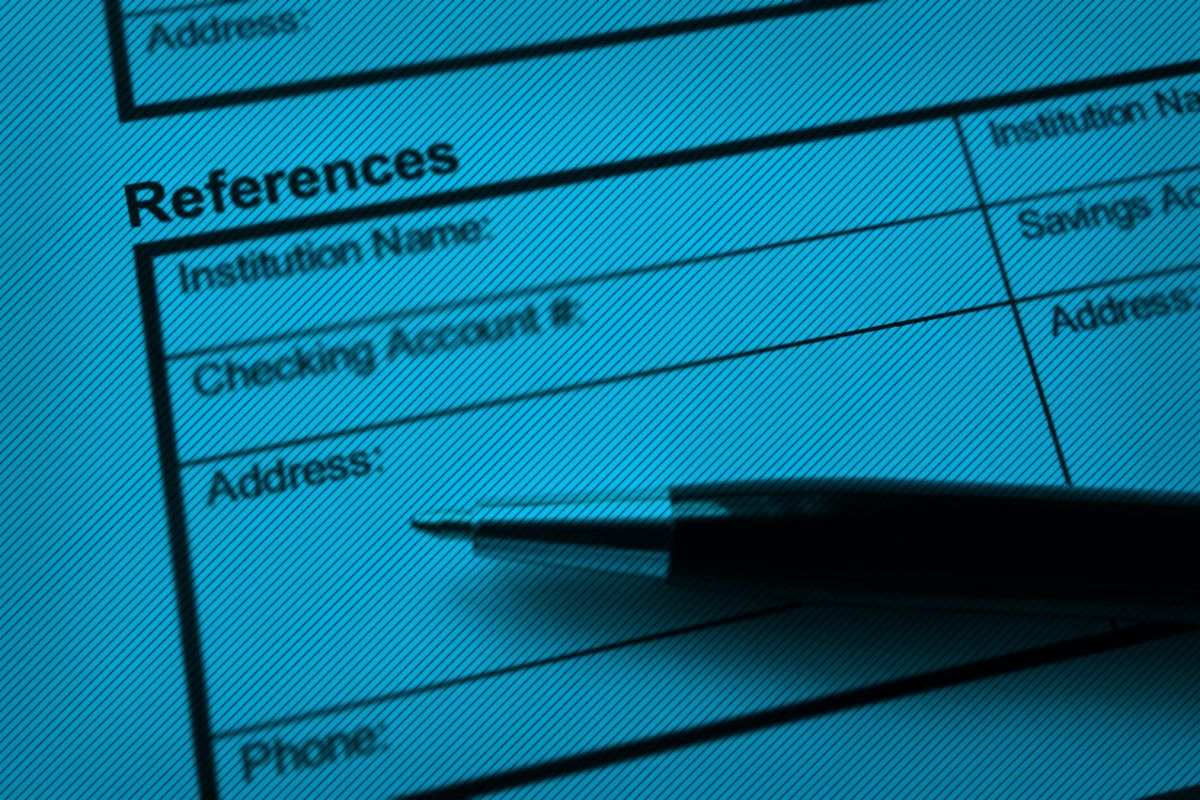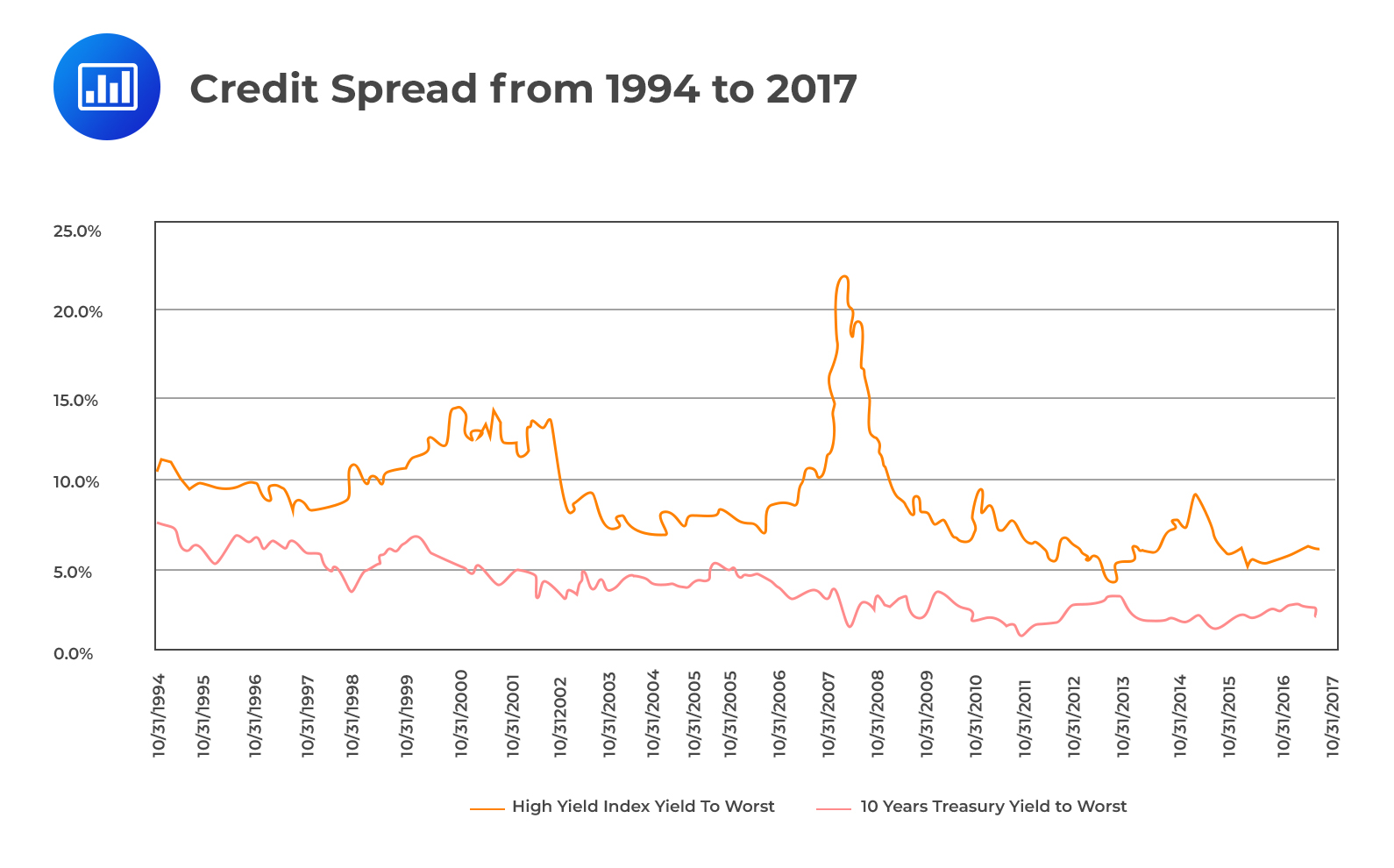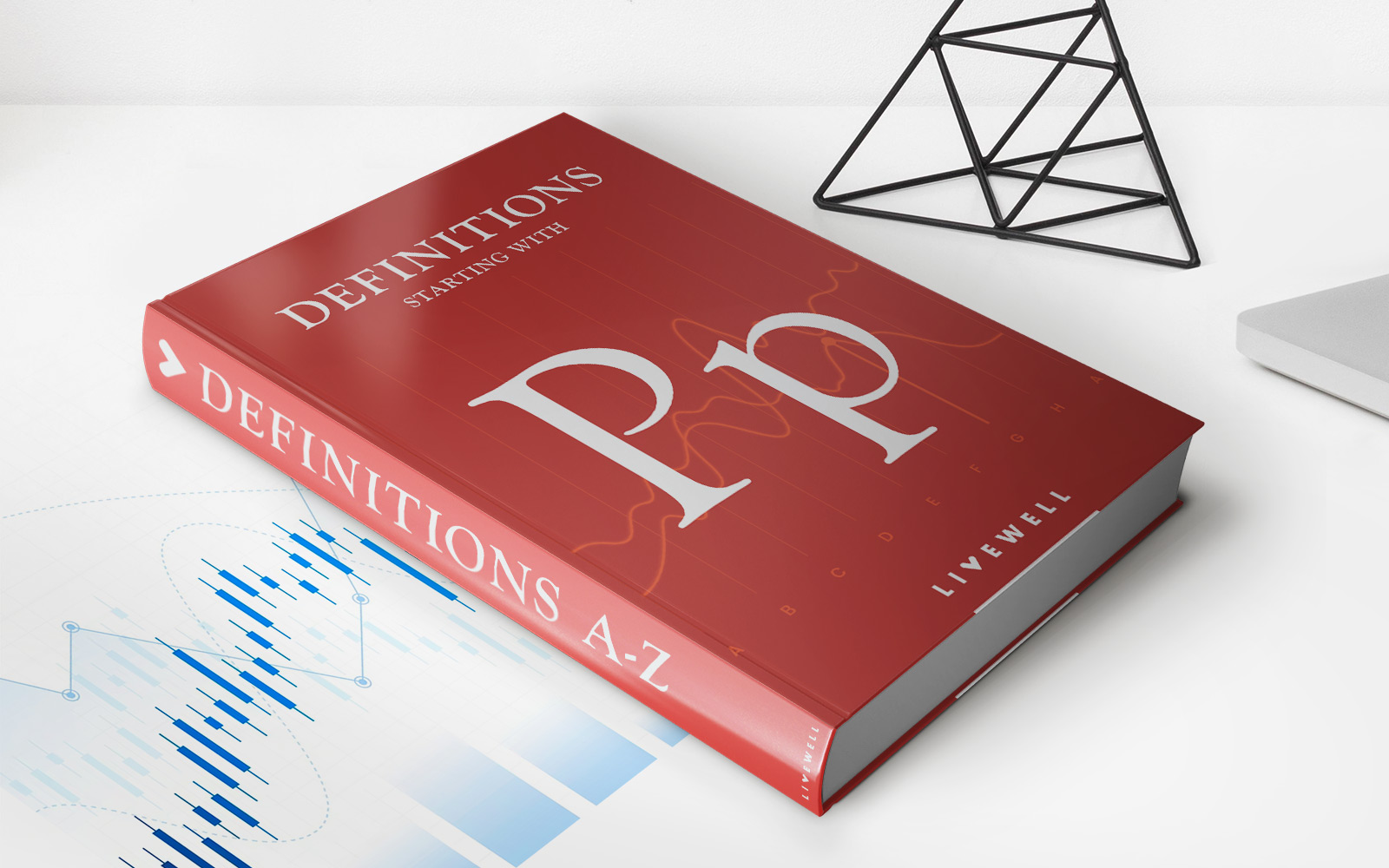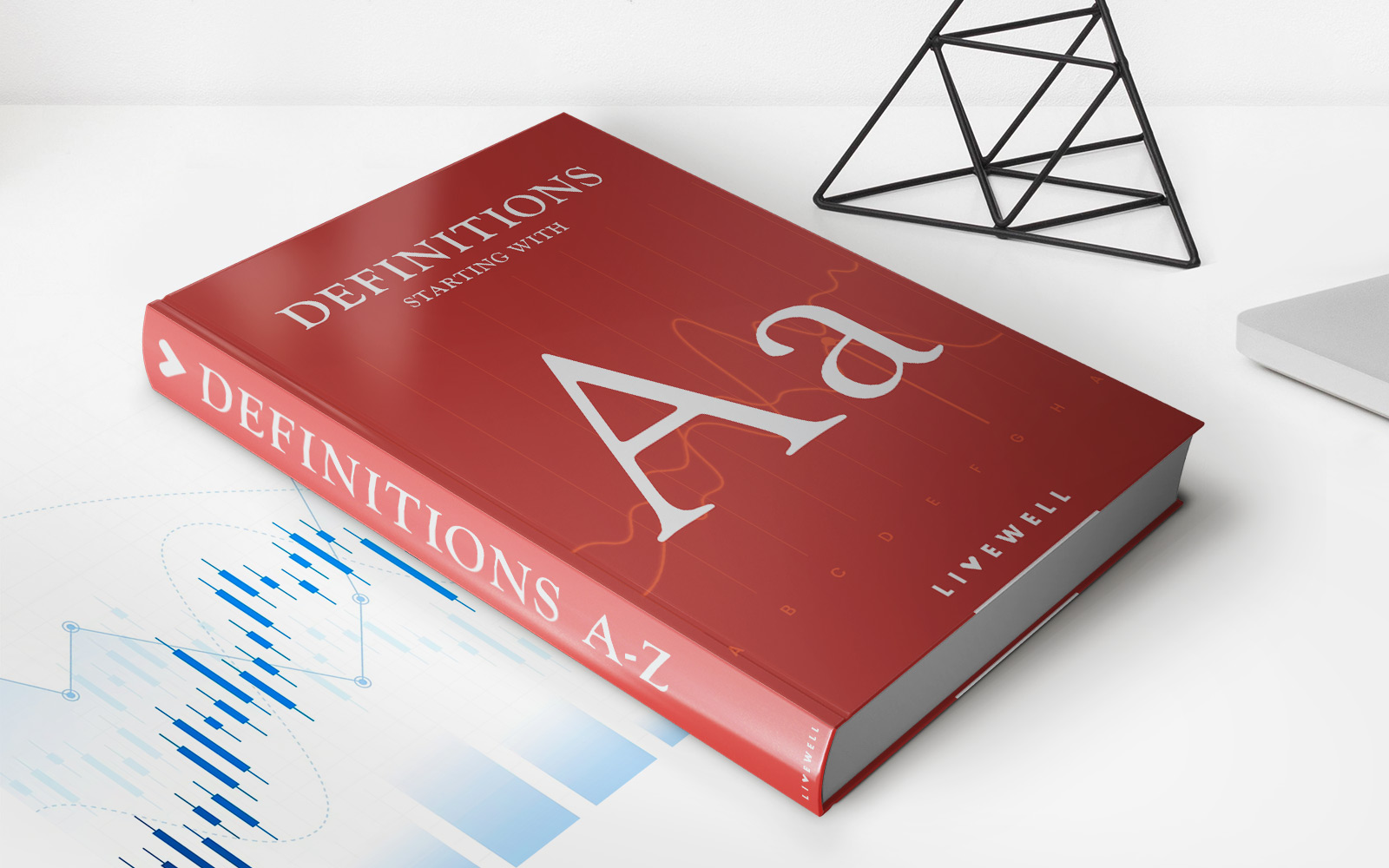

Finance
What Is A Credit Refrence
Modified: February 21, 2024
Discover the importance of credit references in finance and learn how they impact your financial standing. Gain insights on how credit references influence loan approvals and creditworthiness.
(Many of the links in this article redirect to a specific reviewed product. Your purchase of these products through affiliate links helps to generate commission for LiveWell, at no extra cost. Learn more)
Table of Contents
Introduction
When it comes to managing finances, credit references play a vital role. But what exactly is a credit reference? In simple terms, a credit reference is a document or a source of information that helps lenders and financial institutions assess an individual’s creditworthiness. It serves as a verification tool that provides details about an individual’s financial history, including their borrowing and repayment habits.
Credit references are an essential aspect of the financial world as they help lenders determine whether an individual is a reliable borrower or a potential risk. By analyzing the information provided in a credit reference, lenders can make informed decisions about granting credit, such as loans or credit cards.
In today’s fast-paced world, where access to credit is crucial for many financial endeavors, having a strong credit reference is essential. It can open doors to better loan terms, lower interest rates, and more favorable financial opportunities. However, building a strong credit reference requires careful financial management and responsible borrowing.
In this article, we will delve into the world of credit references, exploring their importance, sources, types, how they are used, and the benefits of having good credit references. We will also discuss the challenges involved in obtaining credit references and provide insights on how you can build strong credit references to enhance your financial standing.
Definition of a Credit Reference
A credit reference is a comprehensive record or report containing information about an individual’s credit history and their financial behavior. It serves as a reference document for lenders and financial institutions to assess the creditworthiness of a person or a business entity.
A credit reference typically includes details such as the individual’s credit score, payment history, outstanding debts, loan repayment patterns, and any default or delinquency records. It provides a snapshot of an individual’s financial reliability and helps lenders evaluate the risk involved in extending credit to them.
Furthermore, a credit reference can also include information about the individual’s employment history, residential address, and any previous bankruptcy or legal proceedings related to their financial matters. This information gives lenders a more comprehensive picture of the individual’s financial background and helps them make informed decisions.
Credit references can come in various forms, including credit reports from credit bureaus, bank statements, references from previous lenders, and even personal references from individuals who can vouch for the individual’s financial stability and creditworthiness.
It’s important to note that credit references are used not only for individuals but also for businesses. In the case of businesses, the credit reference includes information about the company’s financial performance, outstanding debts, and payment history. This information helps other businesses and financial institutions assess the creditworthiness of a company before entering into any financial agreements or transactions.
In summary, a credit reference is a comprehensive evaluation of an individual’s or a business’s creditworthiness based on their financial history, payment patterns, and other relevant information. It serves as a crucial tool for lenders to determine the level of risk associated with extending credit and plays a significant role in financial decision-making.
Importance of Credit References
Credit references are of paramount importance in the financial world for both individuals and businesses. They serve as a fundamental tool for lenders and financial institutions to assess the creditworthiness and reliability of potential borrowers. Here are some key reasons why credit references are vital:
- Evaluation of Creditworthiness: Credit references provide crucial insights into an individual’s or a business’s financial behavior. Lenders use this information to assess the level of risk associated with extending credit. A good credit reference indicates a strong likelihood of timely repayments, while a poor credit reference may suggest a higher risk of default.
- Access to Credit: Having positive credit references increases the chances of obtaining credit. Lenders are more likely to approve loan applications and credit card requests when the applicant has a proven track record of responsible borrowing and repayment. This access to credit enables individuals and businesses to fulfill their financial needs, whether it’s purchasing a home, expanding a business, or meeting personal expenses.
- Favorable Loan Terms: A strong credit reference can result in more favorable loan terms. Lenders are more inclined to offer lower interest rates, higher credit limits, and more flexible repayment options to borrowers with excellent credit references. This can lead to significant savings over time and improved financial management.
- Enhanced Financial Opportunities: Positive credit references open doors to various financial opportunities. They establish a reputation of financial responsibility, making it easier to secure rental agreements, obtain insurance policies, and even qualify for employment opportunities. Additionally, businesses with strong credit references are more likely to attract investors and partners, facilitating growth and expansion.
- Positive Financial History: Building and maintaining good credit references helps establish a positive financial history. This history serves as a valuable asset and can be leveraged in future financial endeavors. A solid credit reference paves the way for future borrowing and financial stability, ensuring a strong foundation for long-term financial success.
Overall, credit references are indispensable in the realm of finance. They provide a comprehensive evaluation of creditworthiness, grant access to credit and favorable loan terms, open up financial opportunities, and build a positive financial history. It’s essential to understand the significance of credit references and take steps to maintain a strong and favorable credit profile.
Sources of Credit References
Credit references can be obtained from various sources that provide information about an individual’s or a business’s financial history. These sources play a crucial role in determining creditworthiness and help lenders make informed decisions. Here are some common sources of credit references:
- Credit Bureaus: Credit bureaus, such as Equifax, Experian, and TransUnion, are repositories of credit information. They collect data from various sources, including lenders, financial institutions, and public records, to create credit reports. These reports include information such as credit scores, payment history, outstanding debts, and public records like bankruptcies or tax liens. Lenders rely on credit reports from credit bureaus to assess the creditworthiness of individuals and businesses.
- Financial Institutions: Banks, credit unions, and other financial institutions maintain records of their customers’ banking activities. This includes information about loans, credit cards, mortgages, and account balances. Lenders often request credit references from these institutions to verify an individual’s financial standing and repayment history.
- Previous Lenders: If an individual has previously obtained credit from lenders, those lenders can serve as a source of credit references. Lenders may share information about the borrower’s repayment behavior, loan amounts, and any delinquencies or defaults. These references provide valuable insights into an individual’s past borrowing behavior.
- Trade references: For businesses, trade references are essential sources of credit references. Trade references are references from other businesses with whom the company has engaged in financial transactions. These references may include information about payment history, credit limits, and the overall financial relationship. Trade references help lenders evaluate the creditworthiness and financial stability of a business.
- Personal References: In some cases, lenders may request personal references as credit references. Personal references are individuals who can vouch for an individual’s character, financial responsibility, and ability to repay debts. These references can provide insights into an individual’s reliability and may be used particularly when there is limited credit history available.
It is important to note that the availability and usage of credit references may vary depending on the country and the regulations governing credit reporting. However, these sources generally serve as the primary means for lenders to access and evaluate credit references.
When applying for credit, it is crucial to ensure the accuracy and completeness of the information provided by these credit reference sources. Regularly reviewing credit reports and addressing any inaccuracies or discrepancies can help maintain a strong credit profile and improve financial prospects.
Types of Credit References
Credit references come in various forms, each providing different types of information that lenders use to assess creditworthiness. Understanding the different types of credit references can help individuals and businesses prepare and present the most relevant information to lenders. Here are some common types of credit references:
- Credit Reports: Credit reports are comprehensive documents that provide a detailed overview of an individual’s or a business’s credit history. These reports are generated by credit bureaus and include information such as credit scores, payment history, outstanding debts, and any public records like bankruptcies or tax liens. Lenders rely on credit reports to evaluate creditworthiness and assess the level of risk associated with extending credit.
- Bank Statements: Bank statements are another type of credit reference that lenders may request. Bank statements provide insights into an individual’s or a business’s financial habits, such as their income, expenses, and overall banking activities. Lenders use bank statements to verify the individual’s financial stability and assess their ability to manage finances responsibly.
- Trade References: For businesses, trade references are an important type of credit reference. Trade references are references from other businesses with whom the company has conducted financial transactions. These references provide information about payment history, credit limits, and the overall financial relationship. Lenders use trade references to assess a business’s creditworthiness and financial stability.
- Previous Lenders: If an individual or a business has a history of borrowing from lenders, previous lenders can serve as credit references. These lenders can provide information about the borrower’s repayment behavior, loan amounts, and any delinquencies or defaults. Previous lenders’ references help lenders assess the borrower’s track record and determine their creditworthiness.
- Personal References: Personal references can provide a different perspective on an individual’s creditworthiness. These references are individuals who can vouch for an individual’s character, financial responsibility, and ability to repay debts. Personal references offer insights into an individual’s reliability, particularly when there is limited credit history available.
It is important to note that the types of credit references required may vary depending on the lender and the specific credit application. Some lenders may only require credit reports, while others may request additional documentation such as bank statements or trade references.
Preparing and maintaining strong credit references across these different types can improve the chances of obtaining credit and securing favorable loan terms. It is essential to keep track of credit references, ensure their accuracy, and address any discrepancies or issues promptly.
How Credit References are Used
Credit references play a crucial role in the decision-making process of lenders and financial institutions. They are used to assess the creditworthiness of individuals and businesses, helping lenders make informed decisions about granting credit. Here are some key ways in which credit references are used:
- Evaluating Creditworthiness: Credit references provide valuable insights into an individual’s or a business’s financial behavior. Lenders analyze credit references to evaluate creditworthiness and assess the level of risk associated with extending credit. This evaluation includes factors such as payment history, outstanding debts, and any delinquencies or defaults. Based on this assessment, lenders determine whether to approve credit applications and on what terms.
- Determining Loan Terms: Credit references are used to determine the terms and conditions of a loan or credit agreement. Lenders consider the information provided in credit references to set interest rates, establish credit limits, and determine repayment schedules. Borrowers with strong credit references may be offered more favorable loan terms, such as lower interest rates and longer repayment periods, while those with weak or negative credit references may face higher interest rates and stricter conditions.
- Managing Credit Limits: Credit references are used by lenders to manage credit limits for credit cards and lines of credit. They help determine the maximum amount that can be borrowed or spent without impacting the borrower’s creditworthiness. Lenders adjust credit limits based on factors such as income, previous borrowing history, and credit references. Higher credit limits are usually given to individuals or businesses with strong credit references, reflecting their ability to manage larger amounts of credit responsibly.
- Assessing Default Risk: Lenders use credit references to assess the probability of a borrower defaulting on their credit obligations. By analyzing credit references, lenders can identify any past instances of delinquency or default and gauge the risk involved in extending credit to the individual or business. This assessment helps lenders protect themselves from potential financial losses and make informed decisions regarding lending.
- Verifying Financial Stability: Credit references are used by lenders to verify an individual’s or a business’s financial stability. Lenders review the credit history provided in credit references to ensure that the borrower has a consistent and reliable financial track record. This verification helps lenders gauge the borrower’s ability to manage their finances and meet their payment obligations.
In summary, credit references are extensively used by lenders to assess creditworthiness, determine loan terms, manage credit limits, evaluate default risk, and verify financial stability. It is important to maintain strong credit references to improve the chances of obtaining credit and securing favorable loan conditions. Responsible financial management and timely repayment of debts are key to building and maintaining a positive credit history.
Benefits of Having Good Credit References
Having good credit references is crucial for individuals and businesses alike. It not only enhances financial credibility but also provides access to a wide range of benefits. Here are some key benefits of having good credit references:
- Favorable Loan Terms: Good credit references open doors to more favorable loan terms. Lenders are more inclined to offer lower interest rates, longer repayment periods, and higher credit limits to individuals or businesses with strong credit references. These favorable loan terms can result in significant cost savings and improved financial flexibility.
- Access to Credit: Having good credit references increases the likelihood of securing credit and obtaining loans. Lenders are more willing to extend credit to individuals and businesses with a proven track record of responsible borrowing and timely repayments. Good credit references can open up opportunities for purchasing a home, starting a business, or managing personal expenses.
- Lower Interest Rates: Good credit references can lead to lower interest rates on credit cards, mortgages, and other loans. Lenders perceive individuals or businesses with strong credit references as lower-risk borrowers, resulting in reduced interest rates. This means less money spent on interest fees over the life of a loan or credit card balance.
- Increased Credit Limits: Good credit references may result in higher credit limits, providing individuals and businesses with greater purchasing power and financial flexibility. Lenders are more willing to extend higher credit limits to borrowers with a proven ability to handle credit responsibly, allowing for larger transactions and increased financial opportunities.
- Better Insurance Rates: Insurance companies often consider credit references when determining insurance premiums. Individuals or businesses with good credit references may be eligible for lower insurance rates, as insurers perceive them as lower-risk policyholders. This can result in substantial savings on auto insurance, homeowners insurance, and other forms of coverage.
- Improved Housing Opportunities: Good credit references can enhance housing opportunities, as landlords and property managers often consider credit references during the rental application process. Individuals or businesses with positive credit references are more likely to secure desirable rental properties and negotiate favorable lease terms.
Having good credit references is not only beneficial in the present but also for future financial endeavors. It sets a strong foundation for building creditworthiness, opening up further opportunities for financial growth and success.
It’s important to maintain good credit references by practicing responsible financial management, making timely payments, and managing debt responsibly. Regularly reviewing credit reports and addressing any discrepancies can help ensure the accuracy of credit references. By doing so, individuals and businesses can leverage the benefits of good credit references to improve their financial well-being.
Challenges of Obtaining Credit References
While credit references are crucial for establishing creditworthiness and accessing financial opportunities, there can be challenges in obtaining and maintaining them. These challenges can vary depending on individual circumstances and may include the following:
- Limited Credit History: One of the primary challenges individuals face is building credit references when they have a limited credit history. Without a well-established credit history, it can be difficult to demonstrate a track record of responsible borrowing and repayment. Lenders may be hesitant to extend credit or may offer less favorable terms.
- Financial Missteps: Past financial missteps, such as missed or late payments, defaulting on loans, or having a history of bankruptcy can significantly impact credit references. These negative references can make it challenging to access credit or may result in higher interest rates and stricter loan terms.
- Limited Sources of Credit: Another challenge is the availability of limited sources of credit. Some individuals may have difficulty obtaining credit references if they do not have a diversified credit portfolio. For example, if they only have one credit card or do not have any loans, it can be challenging to build a robust credit history.
- Identity Theft: Identity theft is a growing concern, and it can impact credit references. If someone’s identity is stolen, unauthorized accounts or fraudulent activities can be reported on their credit references. Resolving these issues and restoring accurate credit references can be a complex and time-consuming process.
- Inaccurate Reporting: Credit reporting errors are not uncommon and can negatively impact credit references. Inaccurate information, such as incorrect payment history, outstanding balances, or even identity information, can result in lower credit scores and may affect access to credit or loan opportunities.
- Inconsistent Reporting: Inconsistent reporting can also pose challenges in establishing credit references. Some lenders may not report to all credit bureaus, which can result in a lack of comprehensive credit information. This inconsistency can make it difficult for lenders to obtain a complete picture of an individual’s creditworthiness.
Overcoming these challenges requires diligence, responsible financial management, and taking proactive steps to build and maintain strong credit references. This can include establishing credit accounts, making timely payments, monitoring credit reports regularly, and addressing any discrepancies or issues promptly.
Additionally, seeking professional assistance or utilizing credit-building tools and resources can help individuals navigate these challenges and establish a strong foundation for their credit references.
How to Build Strong Credit References
Building strong credit references is essential for establishing a solid financial foundation and accessing favorable loan terms and financial opportunities. While it may take time and effort, following these steps can help individuals build and maintain strong credit references:
- Establish Credit Accounts: To start building credit references, individuals should consider opening credit accounts such as credit cards or small loans. Timely payments and responsible borrowing habits on these accounts can help establish a positive credit history.
- Make Timely Payments: Making timely payments is crucial for maintaining strong credit references. Paying bills, loan installments, and credit card balances on time demonstrates financial responsibility and reliability to lenders.
- Keep Credit Utilization Low: It’s important to keep credit utilization, the ratio of credit used to credit available, low. Aim to use only a portion of the available credit limit, ideally below 30%, as high utilization can negatively impact credit references.
- Diversify Credit Accounts: Having a diverse mix of credit accounts can strengthen credit references. It may include credit cards, installment loans, or a mortgage, demonstrating the ability to responsibly manage different types of credit.
- Avoid Excessive Credit Applications: Applying for credit excessively can raise concerns for lenders and impact credit references. Limit credit applications to only when necessary and avoid unnecessary inquiries that may negatively affect credit scores.
- Monitor Credit Reports: Regularly monitor credit reports to ensure the accuracy of credit references. Report any discrepancies, errors, or fraudulent activity to the credit bureaus to maintain a strong credit profile.
- Manage Debt Responsibly: Properly managing debts is critical for maintaining strong credit references. Strive to pay off debts on time and avoid accumulating excessive debt that can negatively impact credit scores and references.
- Establish a Lengthy Credit History: Building a lengthy credit history demonstrates stability and responsibility to lenders. Avoid closing older credit accounts, as they contribute to the length of credit history, positively impacting credit references.
- Build a Positive Financial Reputation: Building a positive financial reputation beyond credit references is important. This includes paying utility bills, rent, and other financial obligations on time, as these may also contribute to your overall financial standing.
Building strong credit references takes time and consistent effort. It’s important to practice responsible financial habits and prioritize timely payments and low credit utilization. By doing so, individuals can establish a solid credit history and improve their chances of accessing credit at favorable terms.
It may be beneficial to consult with financial advisors or credit counseling services for personalized guidance on building and improving credit references. Their expertise can help individuals navigate specific financial situations and develop effective strategies for building strong credit profiles.
Conclusion
Credit references play a vital role in the financial world, serving as a tool for lenders and financial institutions to assess creditworthiness and make informed decisions. Understanding what credit references are and how they are used allows individuals and businesses to navigate the financial landscape more effectively.
Throughout this article, we have explored the definition of credit references, their importance, and the various sources and types available. We have discussed how credit references are used to evaluate creditworthiness, determine loan terms, and assess financial stability. Additionally, we have highlighted the benefits of having good credit references, such as favorable loan terms, increased access to credit, and improved financial opportunities.
We have also acknowledged the challenges involved in obtaining credit references, such as limited credit history, financial missteps, and inaccurate reporting. However, by following steps to build strong credit references, including establishing credit accounts, making timely payments, and managing debts responsibly, individuals can overcome these challenges and enhance their financial standing.
Building and maintaining strong credit references is a continuous process that requires consistent effort, responsible financial management, and monitoring of credit reports. Regularly reviewing credit references and addressing any errors or discrepancies is crucial for maintaining accurate credit profiles.
In conclusion, credit references serve as a critical tool for lenders and individuals alike. By understanding their significance, individuals can take proactive steps to build strong credit references, improve creditworthiness, and unlock a wide range of financial opportunities. By being intentional and responsible with their financial decisions, individuals can pave the way for long-term financial success and stability.














